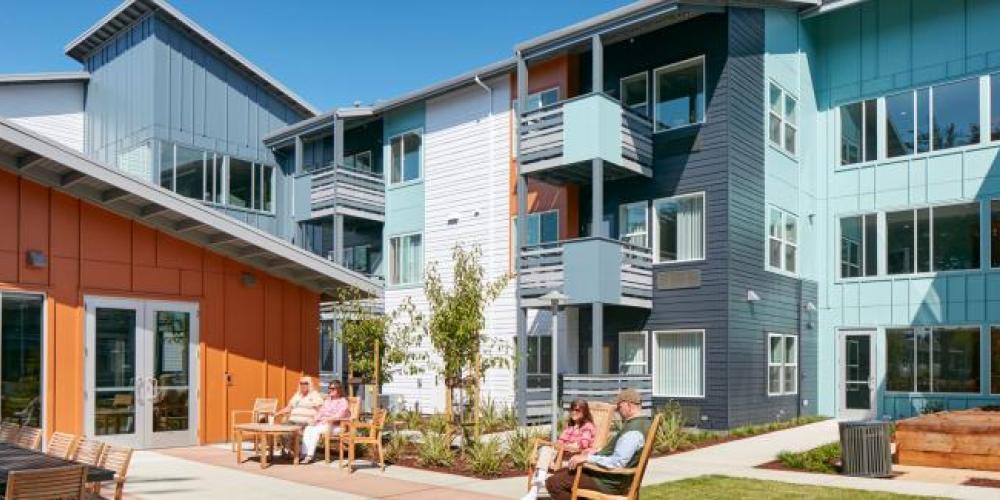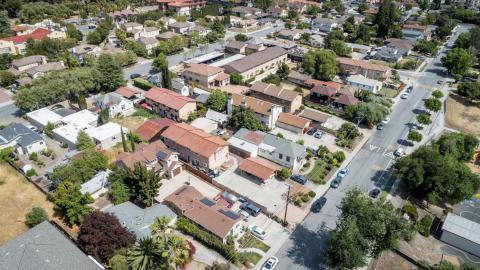
MTC and the Association of Bay Area Governments (ABAG) issued a detailed new report Thursday, entitled Momentum for Lasting Solutions, to serve as a roadmap for private investors as well as federal, state and local governments to combine forces in a comprehensive regional effort to deliver housing affordability throughout the nine-county Bay Area.
Specific strategies identified in the report include securing billions of dollars in dedicated funding; fortifying cities’ and counties’ capacity to produce and preserve housing while also protecting residents from displacement; and launching new pilot programs to prevent homelessness, spur the preservation of existing housing, bolster rental and mortgage assistance, create a single regional platform for affordable housing applications, and establish a regional database to monitor the “pipeline” of new projects in the planning, permitting, financing and construction phases. Near-term actions proposed in the report are designed to lay a foundation for the Bay Area to efficiently and effectively deploy future capital resources, including funds from a potential nine-county ballot measure.
“The Bay Area’s housing crisis has been growing for decades,” said Jesse Arreguin, Berkeley mayor and ABAG executive board president. “The roots of the problem are deep and tangled, and they reach into every one of our communities. ABAG and MTC have been organizing a coordinated regional approach because the problem is too big for any one city or county to solve separately.”
One of the cornerstones of ABAG’s and MTC’s expanded regional housing portfolio is the Bay Area Housing Finance Authority. Established in 2019 by state Assembly Bill 1487, BAHFA is the first regional housing finance authority in California and gives the Bay Area a new set of tools that can be used in new ways in all nine Bay Area counties and the region’s 101 cities. While BAHFA is comprised of the same membership as MTC, its procedures also are managed by the ABAG Executive Board; and both boards must approve any decision to put a regional housing finance measure on a future ballot.
Napa County Supervisor Alfredo Pedroza, who also serves as Chair of both MTC and BAHFA, acknowledges that meeting the Bay Area’s interrelated housing challenges will require the investment of dollars that are not currently available.
“As a result of the COVID-19 pandemic and the economic upheaval that followed, MTC and ABAG elected not to put a measure on the November 2020 ballot," Pedroza said. "But we have kept working on the ‘Three Ps’ to boost housing production, encourage the preservation of existing housing and protect vulnerable residents from displacement. We’re building partnerships with Bay Area companies and foundations, and also working to secure state and federal dollars that can be used as seed money to kickstart the regional approach outlined by AB 1487 and the Momentum for Lasting Solutions report. And we will continue to evaluate the next viable opportunity to put a regional housing measure on the ballot. The bottom line is that the Bay Area has to deliver stable and affordable housing on a massive scale and with equitable outcomes — now more than ever.”
San Francisco Assembly member David Chiu, who authored AB 1487, explained in 2020 that, “BAHFA is more than just a vehicle for voters to support affordable housing. It’s also a vehicle for collectively addressing our housing crisis, embracing bold ideas, testing innovative approaches, strengthening the partnership between ABAG and MTC through shared decision-making, and fostering new funding partnerships with foundations and the private sector.”
View the complete Momentum for Lasting Solutions report on the ABAG website.
MTC is the transportation planning, financing and coordinating agency for the nine-county San Francisco Bay Area. ABAG is the council of governments and the regional planning agency for the 101 cities and towns, and nine counties of the Bay Area.



Submit your comment
In order to receive a reply to your comment, please provide an email address.